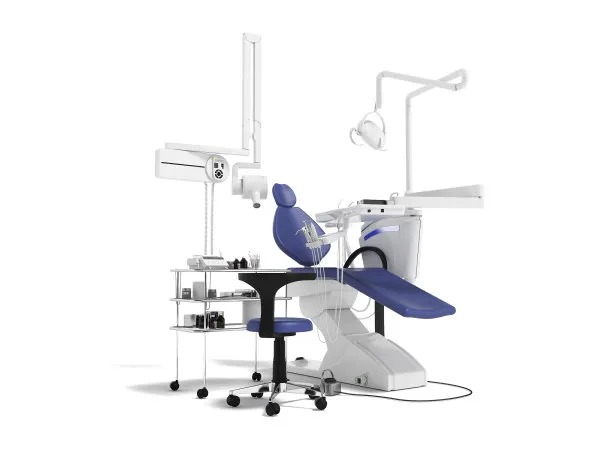Summary: A root canal treatment is critical for preserving oral health when faced with an infected or damaged tooth. However, the success of this procedure hinges on essential precautions that patients and dental professionals must take. This article discusses four crucial aspects: selecting a qualified professional, understanding the procedure, ensuring proper aftercare, and maintaining preventive dental hygiene. By focusing on these areas, both patients and practitioners can contribute to positive outcomes that safeguard and enhance oral health, leading to long-term benefits.
1. Choosing a Qualified Dental Professional

One of the most vital aspects of ensuring a safe and successful root canal treatment is selecting a qualified dental professional. Its essential to seek out a dentist with specialized training in endodontics, the branch of dentistry that deals specifically with root canal procedures. These professionals have the skills and knowledge required to handle complex cases, ensuring the best possible treatment for patients.
Additionally, checking for credentials and reviews can provide insight into the dentists capabilities. Look for certifications from recognized dental boards and affiliations with professional organizations. This information can help patients make an informed choice, increasing the likelihood of a successful outcome.
Moreover, a good dental professional should prioritize communication. During the initial consultation, they should clearly explain the procedure, the expected outcomes, and any risks involved. This transparent approach fosters trust and helps patients feel more comfortable throughout the treatment process.
2. Understanding the Root Canal Procedure
Before undergoing a root canal treatment, having a thorough understanding of the procedure can alleviate any anxiety associated with it. Patients should be well-informed about what to expect during the treatment, including the steps involved and the estimated time frame. Knowing that the goal is to remove infected tissue from the tooth can help demystify the process.
Moreover, discussing sedation options with the dentist is crucial for managing discomfort during the treatment. Many dental offices offer various sedation methods to ensure a pain-free experience. Whether it’s local anesthesia or sedation dentistry, understanding these options can contribute to reduced anxiety and a more relaxed experience.
Aftercare management should also be part of the discussion. Patients need to know about any potential side effects, such as swelling or discomfort post-treatment. Having a clear aftercare plan can help patients prepare for recovery and ensure they follow through with necessary precautions.
3. Ensuring Proper Aftercare Post-Treatment
After a root canal procedure, proper aftercare is paramount for optimal recovery. Patients should adhere to post-treatment instructions provided by their dental professional, which often includes guidelines about pain management, diet restrictions, and oral hygiene practices. Following these directions can significantly improve healing times and reduce the risk of complications.
Moreover, managing pain should be addressed proactively. Dentists often recommend over-the-counter pain relievers to alleviate discomfort post-treatment. Patients should also be aware of signs that may indicate complications, such as severe pain or swelling, and know when to contact their dentist for further assistance.
Regular follow-up appointments are also essential for monitoring recovery. These check-ups allow the dental professional to assess the treated tooths condition and ensure everything is healing properly. Patients should prioritize these visits to maintain optimal oral health moving forward.
4. Maintaining Preventive Dental Hygiene
Once a root canal is completed, maintaining preventive dental hygiene is crucial for achieving long-term oral health. Patients should establish a consistent oral care routine, which includes regular brushing, flossing, and the use of an antibacterial mouth rinse. These practices can help prevent future infections and other dental problems.
Regular dental check-ups play an essential role in preventive hygiene. Patients should schedule visits every six months to allow the dentist to monitor overall dental health, perform cleanings, and identify potential issues early on. These proactive measures can help safeguard against further complications.
Education on dietary choices is another critical component. Patients should be mindful of how their diet affects dental health. Consuming a balanced diet rich in vitamins and minerals can enhance oral health, while avoiding excessive sugar can minimize the risk of decay.
Summary:
In conclusion, taking essential precautions before, during, and after a root canal treatment significantly impacts the procedures success. From choosing a qualified dental professional to understanding the procedure, ensuring proper aftercare, and maintaining preventive dental hygiene, all these aspects contribute to optimal oral health. Being proactive and informed pays off in the long run, leading to healthy smiles and lasting well-being.
This article is compiled by Vickong Dental and the content is for reference only.
Vickong Dental
Vickong Dental is a large medical group established in Hong Kong in 2008 by professors from well-known medical universities in Guangdong and Hong Kong, as well as medical doctors from key national '985' universities (including Master's supervisors and senior professors). The chain of branches brings together expert dentists with PhDs and Master's degrees from Hong Kong and Mainland China, committed to providing high-quality dental treatment.
"Vickong Dental Practices the University Motto of 'Healing and Serving Society,' with a Stable Operation for Sixteen Years. It Has Been honored with Hong Kong Enterprise Leaders's Choice,' and is a Global Trusted Implant Center for the Nobel Implant System. Recommended by Hong Kong Metro Broadcast and Guangdong Television, it Serves Customers from Over Thirty Countries and Regions, Gaining the Trust and Favor of Citizens from the Guangdong-Hong Kong-Macau Greater Bay Area and Surrounding Cities.

Thousands of customers' unanimous praise
The most recognized and highly recommended dental service by customers in the Guangdong-Hong Kong-Macau Greater Bay Area
We Ensure You Receive Detailed Care and Attention Here
Hong Kong standards, Shenzhen prices, Your Trusted English-speaking dentists

Vickong Dental Medical-Grade Instrument Disinfection Process
Vickong Dental Medical-Grade Instrument Disinfection Process

Vickong Dental Chain: A Warm and Comfortable Environment for Treatment






Appointment Hours

Q&A
Why choose Vickong Dental?
Vickong Dental practices the university motto 「Medicine to Benefit Society」, with each branch bringing together highly qualified dentists with doctoral and master’s degrees from Hong Kong and the Mainland, and has maintained seventeen years of steady operation。Recipient of 「2024 Hong Kong Enterprise Leaders Brand」, 「2025 Hong Kong Enterprise Leaders Brand」, a Nobel Biocare Global Trusted Implant Center, and a brand recommended by Metro Radio Hong Kong and Guangdong TV。
To date, we have served customers from more than thirty countries and regions,earning exceptionally high word-of-mouth recognition and trusted recommendations from residents across the Guangdong-Hong Kong-Macao Greater Bay Area and surrounding cities
We have eight major branches in Zhuhai、Shenzhen,and a consultation and service assurance center in Hong Kong,so you can book a free consultation at any time for any questions,which is very reassuring.
If I do not accept the quotation after the CT scan, will I be charged??
No! As long as the actual treatment has not started, you will not be charged any fees.
Will there be any additional charges during the treatment process?
No, there won’t be any additional charges. Before treatment begins, we will clearly explain the treatment plan and its corresponding fees. Only after the patient agrees and signs the consent form will we proceed with the dental service.
Can I pay in Hong Kong dollars?
Yes. Vickong Dental accepts payment in Hong Kong dollars. The amount will be converted based on the exchange rate of the day, and the applicable rate will be clearly communicated to you in advance.
Can I reschedule my appointment at any time?
Yes. Please contact us via **WeChat** or **WhatsApp** as early as possible, providing your original appointment time and details, along with your preferred new date and time slot for rescheduling.













